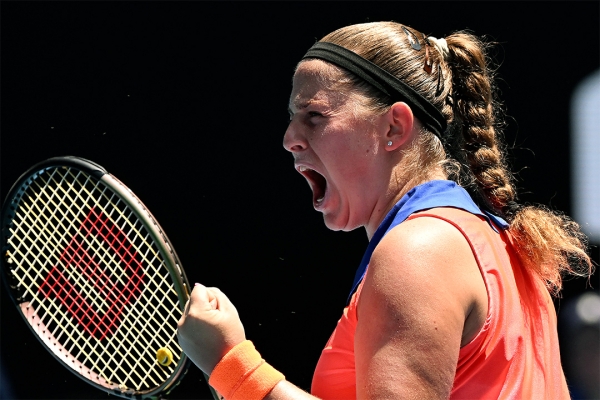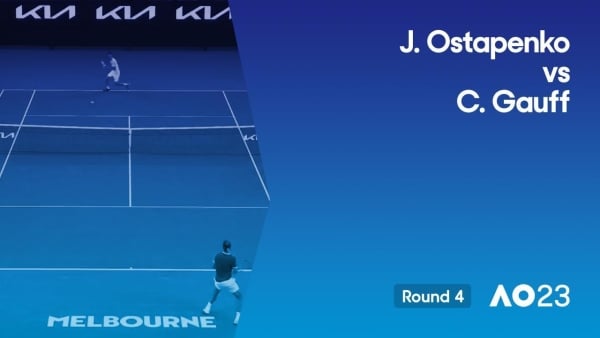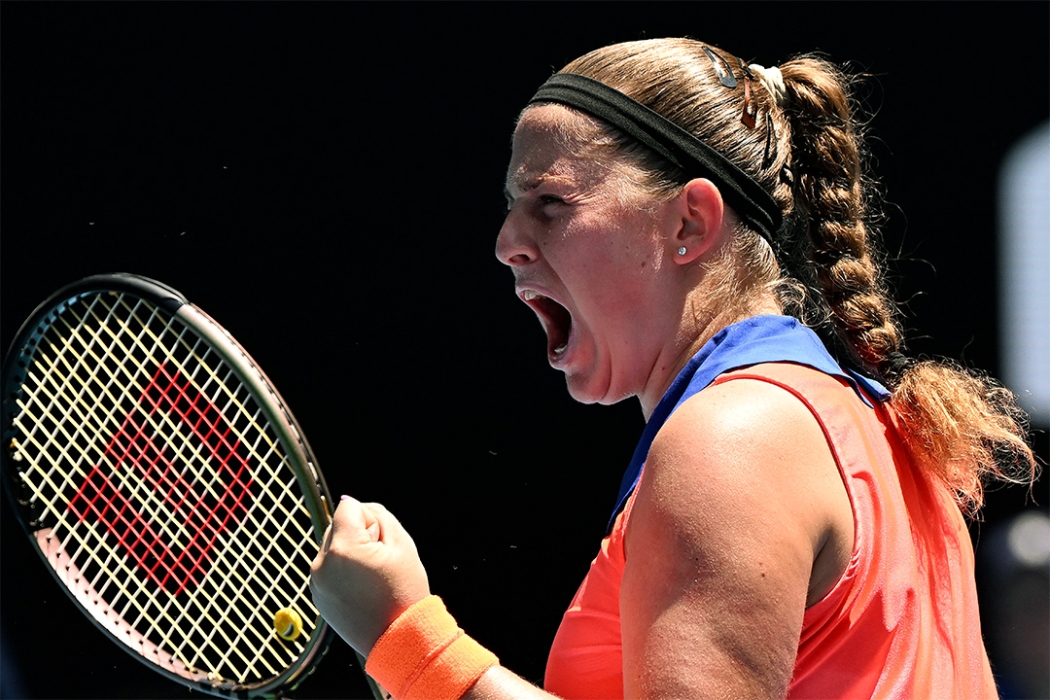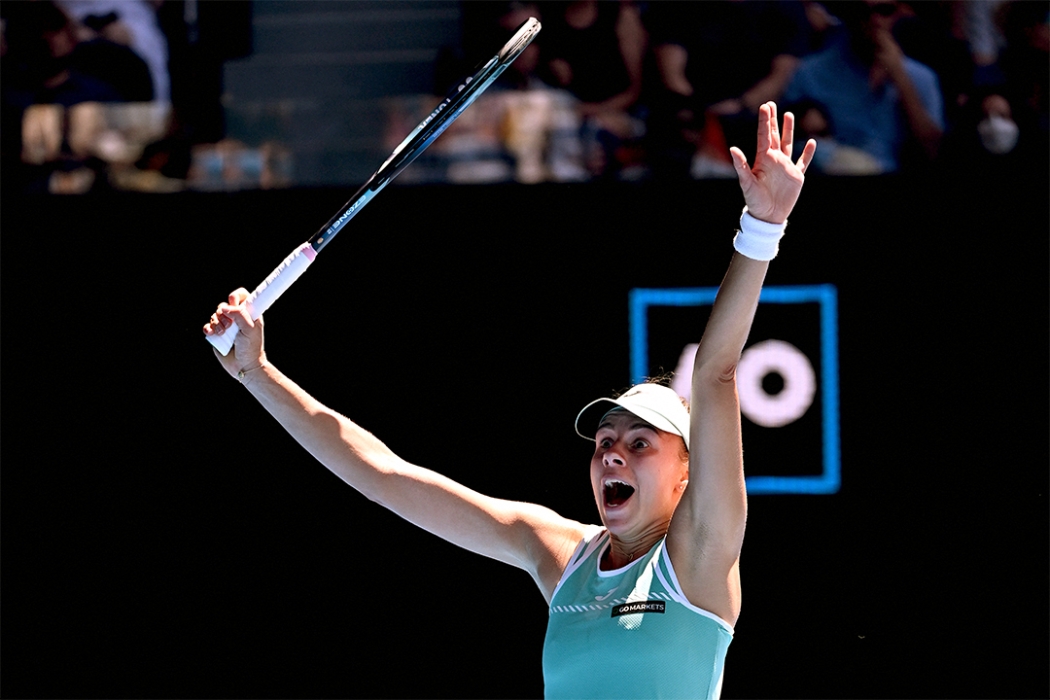Two days after her 20th birthday, an unseeded Jelena Ostapenko stunned the tennis world by etching her name onto the Suzanne Lenglen Cup at Roland Garros 2017. In the five-plus years that followed, the weight of expectation has proved a hindrance – until now.
"I needed some time to get used to it," said Ostapenko amid a resurgent run in Melbourne that has earned her bragging rights as the first Latvian women's player to reach an Australian Open quarterfinal.
"Everybody expected you almost to win every single tournament, which is crazy, because you are still a human and you cannot feel great every day.
"A lot of attention from everywhere outside the court, like photo shoots and all those kinds of things. You became more popular in your country, everybody is watching you."

Now 25, the Latvian is better at dealing with the pressure associated with being a former Grand Slam champion.
"My life changed a lot, so I needed a few years to really get used to what happened because I was really young," said Ostapenko.
It helps that the right-hander isn't racing against a clock of any kind.
"I'm still young so I still have time … it's not like [this is] the last tournament I'm playing and I'm like 35," she said after being upset as the 12th seed during the fourth round at Wimbledon last year.
Since her Parisian triumph, the Latvian has clinched another four singles titles on the WTA Tour. But before this fortnight, the 2018 grass season marked her last run to the final eight of a major. Regardless, Ostapenko's self-belief has not wavered.
"I always knew and believed in my game. If I play well, I can beat almost anyone," she said after upsetting seventh seed Coco Gauff on Sunday.
"I think, honestly, I can do well on all surfaces … it really depends on my game and my kind of mental strength and focus."
The talented American gave credit to her conqueror, acknowledging that when Ostapenko is in full flight, she's basically unplayable. "When you play a player like her and she plays really well … there's nothing you can do," said Gauff.
MORE: AO 2023 women's singles draw
During the pre-season, Ostapenko worked on improving her consistency by focusing on fitness and movement, including drills in which she comes forward on points. A glance at statistics from her first four matches in Melbourne indicates that effort has been fruitful.
A perpetually aggressive return game has earned the 17th seed a tournament-leading 75 per cent break point conversion rate among the remaining title hopes.
Almost one in every four strokes has been a winner, and she's clinched 63 per cent of all baseline points – the most of any women's contender.
"I'm stepping much better in the court and taking the ball earlier, so I take time away from the opponents, which makes me [a] more dangerous player," said Ostapenko.
"I have to be aggressive because that's what the opponents don't like."
As for Ostapenko's current goals?
"I'm just more hungry now to win another Grand Slam and just to play well and to be back in [the] top 10," she declared.
To take a step closer to a second major title, Ostapenko must outlast reigning Wimbledon champion and 22nd seed Elena Rybakina on Tuesday.
The Kazakh hasn't won a set against Ostapenko in their prior two singles duels, though she teamed up with Anastasia Pavlyuchenkova to upset the Latvian and her partner Lyudmyla Kichenok in the AO 2023 women's doubles first round.
"I know how to play against her," said the assured Ostapenko.
"I'm just going to try to focus more on myself … if I play my game, I think I have all the chances."


